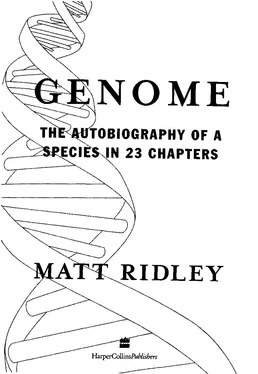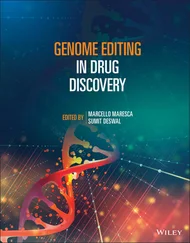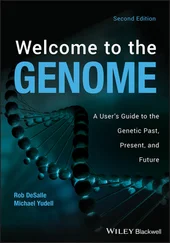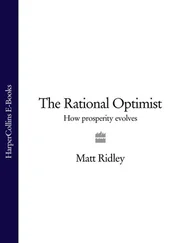Genome - Matt Ridley
Здесь есть возможность читать онлайн «Genome - Matt Ridley» — ознакомительный отрывок электронной книги совершенно бесплатно, а после прочтения отрывка купить полную версию. В некоторых случаях можно слушать аудио, скачать через торрент в формате fb2 и присутствует краткое содержание. Жанр: Старинная литература, на английском языке. Описание произведения, (предисловие) а так же отзывы посетителей доступны на портале библиотеки ЛибКат.
- Название:Matt Ridley
- Автор:
- Жанр:
- Год:неизвестен
- ISBN:нет данных
- Рейтинг книги:5 / 5. Голосов: 1
-
Избранное:Добавить в избранное
- Отзывы:
-
Ваша оценка:
- 100
- 1
- 2
- 3
- 4
- 5
Matt Ridley: краткое содержание, описание и аннотация
Предлагаем к чтению аннотацию, описание, краткое содержание или предисловие (зависит от того, что написал сам автор книги «Matt Ridley»). Если вы не нашли необходимую информацию о книге — напишите в комментариях, мы постараемся отыскать её.
Matt Ridley — читать онлайн ознакомительный отрывок
Ниже представлен текст книги, разбитый по страницам. Система сохранения места последней прочитанной страницы, позволяет с удобством читать онлайн бесплатно книгу «Matt Ridley», без необходимости каждый раз заново искать на чём Вы остановились. Поставьте закладку, и сможете в любой момент перейти на страницу, на которой закончили чтение.
Интервал:
Закладка:
fer to imitate peers than parents. Psychology, like sociology and anthropology, has been dominated by those with a strong antipathy to genetic explanations; it can no longer sustain such ignorance.2
My point is not to rehearse the nature-nurture debate, which I explored in the chapter on chromosome 6, but to draw attention to the fact that even if the nurture assumption had proved true, it would not have reduced determinism one iota. As it is, by stressing the powerful influence that conformity to a peer group can have on personality, Rich Harris lays bare just how much more alarming social determinism is than genetic. It is brainwashing. Far from leaving room for free will, it rather diminishes it. A child who expresses her own (partly genetic) personality in defiance of her parents' or her siblings' pressures is at least obeying endogenous causality, not somebody else's.
So there is no escape from determinism by appealing to socialisa-tion. Either effects have causes or they do not. If I am timid because of something that happened to me when I was young, that event is no less deterministic than a gene for timidity. The greater mistake is not to equate determinism with genes, but to mistake determinism for inevitability. Said the three authors of Not in our genes, Steven Rose, Leon Kamin and Richard Lewontin, 'To the biological determinists the old credo "You can't change human nature" is the alpha and omega of the human condition.' But this equation - determinism equals fatalism — is so well understood to be a fallacy that it is hard to find the straw men that the three critics indict.3
The reason the equation of determinism with fatalism is a fallacy is as follows. Suppose you are ill, but you reason that there is no point in calling the doctor because either you will recover, or you won't: in either case, a doctor is superfluous. But this overlooks the possibility that your recovery or lack thereof could be caused by your calling the doctor, or failure to do so. It follows that determinism implies nothing about what you can or cannot do. Determinism looks backwards to the causes of the present state, not forward to the consequences.
3 0 8 G E N O M E
Yet the myth persists that genetic determinism is a more implacable kind of fate than social determinism. As James Watson has put it, 'We talk about gene therapy as if it can change someone's fate, but you can also change someone's fate if you pay off their credit card.' The whole point of genetic knowledge is to remedy genetic defects with (mostly non-genetic) interventions. Far from the discoveries of genetic mutations leading to fatalism, I have already cited many examples where they have led to redoubled efforts to ameliorate their effects. As I pointed out in the chapter on chromosome 6, when dyslexia was belatedly recognised as a real, and possibly genetic, condition, the response of parents, teachers and governments was not fatalistic. Nobody said that because it was a genetic condition dyslexia was therefore incurable and from now on children diagnosed with dyslexia would be allowed to remain illiterate. Quite the reverse happened: remedial education for dyslexics was developed, with impressive results. Likewise, as I argued in the chapter on chromosome 11, even psychotherapists have found genetic explanations of shyness helpful in curing it. By reassuring shy people that their shyness is innate and 'real', it somehow helps them overcome it.
Nor does it make sense to argue that biological determinism threatens the case for political freedom. As Sam Brittan has argued,
'the opposite of freedom is coercion, not determinism.'4 We cherish political freedom because it allows us freedom of personal self-determination, not the other way around. Though we pay lip service to our love of free will, when the chips are down we cling to determinism to save us. In February 1994 an American named Stephen Mobley was convicted of the murder of a pizza-shop manager, John Collins, and sentenced to death. Appealing to have the sentence reduced to life imprisonment, his lawyers offered a genetic defence. Mobley came, they said, from a long pedigree of crooks and criminals. He probably killed Collins because his genes made him do it. 'He' was not responsible; he was a genetically determined automaton.
Mobley was happy to surrender his illusion of free will; he wanted F R E E W I L L 3 0 9
it to be thought that he had none. So does every criminal who uses the defence of insanity or diminished responsibility. So does every jealous spouse who uses the defence of temporary insanity or justifiable rage after murdering an unfaithful partner. So does the unfaithful partner when justifying the infidelity. So does every tycoon who uses the excuse of Alzheimer's disease when accused of fraud against his shareholders. So indeed does a child in the playground who says that his friend made him do it. So does each one of us when we willingly go along with a subtle suggestion from the therapist that we should blame our parents for our present unhappiness. So does a politician who blames social conditions for the crime rate in an area. So does an economist when he asserts that consumers are utility maximisers. So does a biographer when he tries to explain how his subject's character was forged by formative experiences. So does everybody who consults a horoscope. In every case there is a willing, happy and grateful embracing of determinism. Far from loving free will, we seem to be a species that positively leaps to surrender it whenever we can.5
Full responsibility for one's actions is a necessary fiction without which the law would flounder, but it is a fiction all the same. To the extent that you act in character you are responsible for your actions; yet acting in character is merely expressing the many determinisms that caused your character. David Hume found himself impaled on this dilemma, subsequently named Hume's fork. Either our actions are determined, in which case we are not responsible for them, or they are random, in which case we are not responsible for them. In either case, common sense is outraged and society impossible to organise.
Christianity has wrestled with these issues for two millennia and theologians of other stripes for much longer. God, almost by definition, seems to deny free will or He would not be omnipotent. Yet Christianity in particular has striven to preserve a concept of free will because, without it, human beings cannot be held accountable for their actions. Without accountability, sin is a mockery and Hell a damnable injustice from a just God. The modern Christian consensus is that 3 1 0 G E N O M E
God has implanted free will in us, so that we have a choice of living virtuously or in sin.
Several prominent evolutionary biologists have recently argued that religious belief is an expression of a universal human instinct
— that there is in some sense a group of genes for believing in God or gods. (One neuroscientist even claims to have found a dedicated neural module in the temporal lobes of the brain that is bigger or more active in religious believers; hyper-religiosity is a feature of some types of temporal-lobe epilepsy.) A religious instinct may be no more than a by-product of an instinctive superstition to assume that all events, even thunderstorms, have wilful causes. Such a superstition could have been useful in the Stone Age. When a boulder rolls down the hill and nearly crushes you, it is less dangerous to subscribe to the conspiracy theory that it was pushed by somebody than to assume it was an accident. Our very language is larded with intentionality. I wrote earlier that my genes built me and delegated responsibility to my brain. My genes did nothing of the sort. It all just happened.
E. O. Wilson even argues, in his book Consilience,6 that morality is the codified expression of our instincts, and that what is right is indeed - despite the naturalistic fallacy — derived from what comes naturally. This leads to the paradoxical conclusion that belief in a god, being natural, is therefore correct. Yet Wilson himself was reared a devout Baptist and is now an agnostic, so he has rebelled against a deterministic instinct. Likewise, Steven Pinker, by remaining childless while subscribing to the theory of the selfish gene, has told his selfish genes to 'go jump in a lake'.
Читать дальшеИнтервал:
Закладка:
Похожие книги на «Matt Ridley»
Представляем Вашему вниманию похожие книги на «Matt Ridley» списком для выбора. Мы отобрали схожую по названию и смыслу литературу в надежде предоставить читателям больше вариантов отыскать новые, интересные, ещё непрочитанные произведения.
Обсуждение, отзывы о книге «Matt Ridley» и просто собственные мнения читателей. Оставьте ваши комментарии, напишите, что Вы думаете о произведении, его смысле или главных героях. Укажите что конкретно понравилось, а что нет, и почему Вы так считаете.












